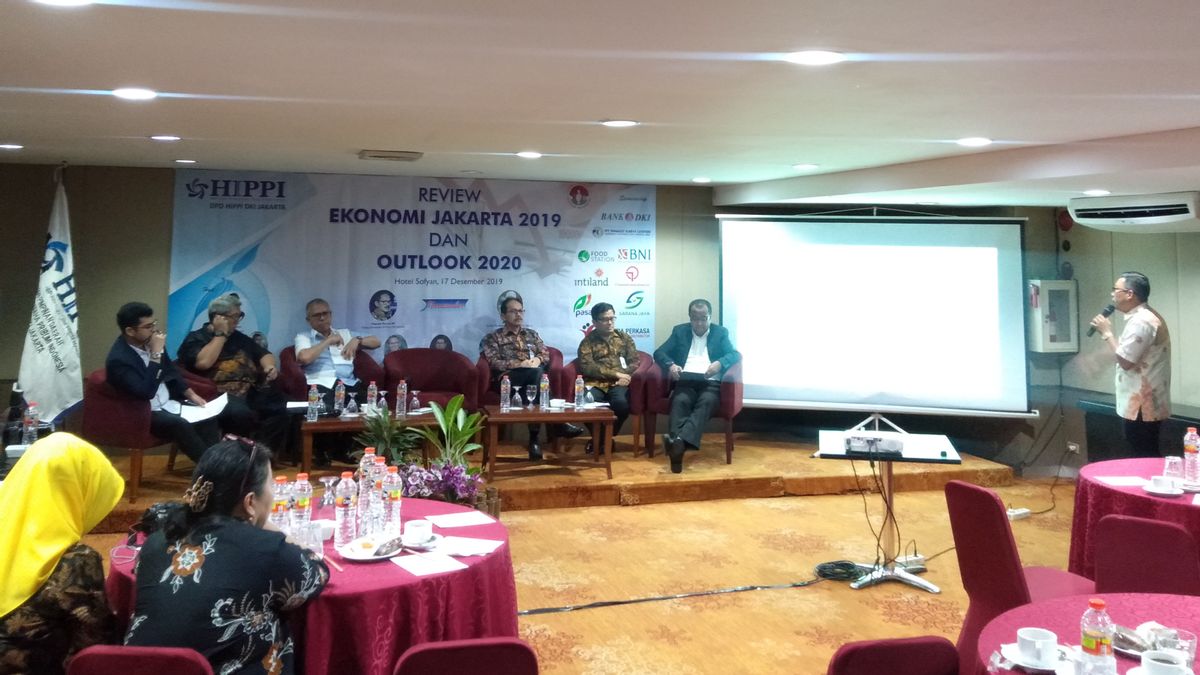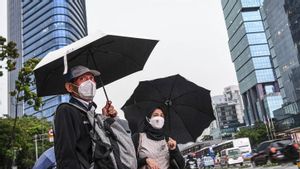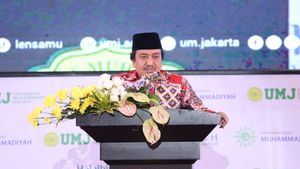JAKARTA - The DKI Provincial Government is targeting economic growth in Jakarta in 2020 to remain at 6 percent. This figure is determined based on calculations of economic growth trends for the last 3 years.
In 2016, economic growth was at 5.85 percent. Entering 2017 it increased by 6.22 percent. However, in 2018, the figure decreased to 6.17 percent.
For 2019, Jakarta's economic growth in the first quarter was 6.23 percent, the second quarter was 5.72 percent, the third quarter was 6.07 percent, and the fourth quarter which coincided with the Christmas and New Year celebrations is estimated at 6.00 percent.
The Association of Indigenous Indonesian Entrepreneurs (HIPPI) sees a number of investment driving challenges that need attention, as well as problems that must be fixed in order for economic growth to reach the target.
First, there is a sluggishness in the retail sector which is starting to close one by one due to the proliferation of online businesses and the decrease in public spending.
"Retail is closed because there is an impact from the rise of online businesses, not on the position of decreasing purchasing power. But it is because of online creativity, which shows that our people's shopping patterns tend to go online, not to malls," said HIPPI Chairman Sarman Simanjorang on Tuesday, December 17th.

Then, there is a decline in the value of sales in the property sector. In addition to the factor of planning to move the capital city, there is a tendency for the middle class to hold back their money to invest in the midst of an unstable global economic turmoil.
Then, the realization of DKI's budget absorption has not been maximized. As of today, local revenues still reach 73 percent. In fact, the absorption target by the end of the fiscal year is 85 percent.
"We see that the advertisement tax, which has the potential to contribute to revenue of Rp1 trillion, is still not maximal. The bill of billboards has not been revised so far, so that business actors in the field of outdoor media advertising experience uncertainty," he explained.
In response, DKI Assistant for Economic Affairs Sri Haryati provided notes on the challenges of economic growth in DKI. On that basis, the DKI Provincial Government will increase efforts to attract investment in Jakarta. In addition, DKI will facilitate the licensing process for investors.
"Next year, we will juxtapose the Tourism Office with the creative economy. This is our seriousness in strengthening the tourism sector and the creative economy. Given that this is the source of our new economic growth in the future," said Sri.
Regarding the low regional income, the DKI Provincial Government is still optimistic about achieving budget absorption at a figure above 80 percent within the two-week time limit until the end of the year.
"Usually the contracts will be carried out at the end of the year. I am sure it is above 80 percent. We already have that prediction. Now it is in process," he added.
The English, Chinese, Japanese, Arabic, and French versions are automatically generated by the AI. So there may still be inaccuracies in translating, please always see Indonesian as our main language. (system supported by DigitalSiber.id)












